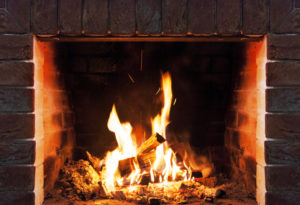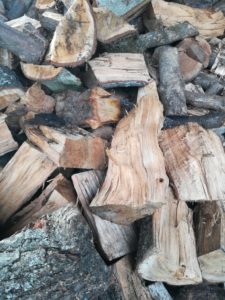



What do Turner Baker think about the UK Government banning the use of wet wood and coal?
wet wood and coal?
The UK government announced on 21st January 2020 that they would be phasing out the sales of house coal and wet wood in small quantities between 2021 and 2023. Open fire and multi fuel stove users will still be able to purchase dry wood and manufactured solid fuels i.e. anthracites or composites sold as processed briquettes.
This is a welcome step by the UK government for the chimney and flue industry. The permitted fuels produce less pollutants and are far more efficient, giving out more heat for the homeowner to enjoy.
What has been banned?
Sales of all bagged house coal will be phased out by February 2021 with sales of loose coal direct to customers being stopped by February 2023.
Sales of wet wood in units of under 2m3 cannot be sold after February 2021. Wet wood sold in bulk (in greater volumes than 2m3) can be sold after February 2021 but the seller must give clear direction on how the wood should be stored and dried before it can be burnt.
What alternatives to coal will there be after 2021?
Manufactured solid fuels for domestic combustion will be limited to those that can prove that they have a very low sulphur content and only emit a small amount of smoke. These fuels will have to be labelled as compliant with this.
will have to be labelled as compliant with this.
How can I tell if my wood is wet or dry?
If you purchase your wood from a reputable supplier, the moisture levels should be clearly stated. If you are obtaining your wood from another source, you can purchase a wood moisture meter to test the moisture levels. These are small, handheld devices with two prongs that are inserted into the wood and give an instant reading on a digital display.
Why is this better for the environment?
Wet Wood
If you have ever tried burning wet wood, you will know that the fire will not produce a warm flame. Wet wood will produce more smoke and you have to use more wood to try and achieve the same effect that you would get with a smaller amount of dry wood. What you don’t see is that wet wood will also be depositing tar (see our web page on Tar Build up) on the inside of your flue. Because the wet wood doesn’t achieve such a high temperature or burn as efficiently as dry wood it produces more particulate matter, or soot – and these are the particulates that are damaging to the environment.
Coal
If you sweep a chimney that has burnt a lot of house coal you end up with a lot of fine dust and soot coming out of it. This is because house coal burns less efficiently due to higher levels of impurities (sulphur and nitrogen). Think about smog, acid rain, discolouration to buildings in cities and industrial areas – these can all be attributed to the sulphur in coal.
In conclusion, we at Turner Baker see this as a positive step by the UK Government. We have always advised our customers to burn dry wood for the benefit of their flues and to ensure that they get the best results from their open fire or wood burning stove. Similarly, the ban on coal will also reduce the amount of particulates in the air and reduce the amount of soot being deposited in chimneys and flues.
If you have any questions on the how to get the best out of your open fire or wood burning stove, please call us on 01432 839123.



